| Coach | NA |
| Venue | Ostseestadion |
Hansa Rostock Trivia
Hansa Rostock predictions
Predictions for Hansa Rostock: See upcoming and historic predictions for Hansa Rostock below.
Disclaimer: Past performance does not guarantee future results. Betting involves risk; only wager what you can afford to lose. Always gamble responsibly.
Hansa Rostock Opinions
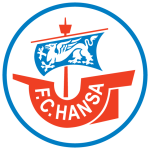 Who is the greatest Hansa Rostock player of all time?
Who is the greatest Hansa Rostock player of all time?
Hansa Rostock latest results
| 12/04 | - | ||
| 05/04 | - | ||
| 30/03 | 2 - 0 | ||
| 02/03 | 0 - 3 | ||
| 25/02 | 2 - 0 |
Hansa Rostock latest transfers
| Date | Player | From | To | Price |
|---|---|---|---|---|
| 2024-01-30 | N. Körber | Hansa Rostock | SpVgg Greuther Furth | € 150K |
| 2022-07-04 | H. Behrens | Hansa Rostock | Persija | € 200K |
| 2022-07-01 | M. Schröter | Dynamo Dresden | Hansa Rostock | € 100K |
| 2021-07-01 | R. Munsy | FC Wurzburger Kickers | Hansa Rostock | € 300K |
| 2019-07-18 | M. Biankadi | Hansa Rostock | FC Heidenheim | € N/A |
| 2015-01-09 | M. Christiansen | Hansa Rostock | FC Ingolstadt 04 | € 250K |
| 2011-07-01 | T. Trybull | Hansa Rostock | Werder Bremen | € 200K |
2. Bundesliga standings
| Rank | Team | MP | W | D | L | GF | GA | GD | Pts |
|---|---|---|---|---|---|---|---|---|---|
| 1 |
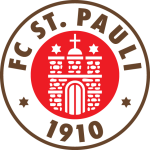 FC St. Pauli
FC St. Pauli
|
28 | 16 | 9 | 3 | 51 | 28 | 23 | 57 |
| 2 |
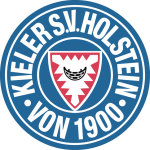 Holstein Kiel
Holstein Kiel
|
28 | 17 | 4 | 7 | 55 | 34 | 21 | 55 |
| 3 |
 Hamburger SV
Hamburger SV
|
28 | 14 | 6 | 8 | 53 | 39 | 14 | 48 |
| 4 |
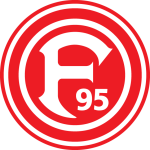 Fortuna Dusseldorf
Fortuna Dusseldorf
|
27 | 13 | 7 | 7 | 59 | 35 | 24 | 46 |
| 5 |
 Hannover 96
Hannover 96
|
27 | 11 | 10 | 6 | 50 | 35 | 15 | 43 |
| 6 |
 Karlsruher SC
Karlsruher SC
|
28 | 11 | 9 | 8 | 57 | 42 | 15 | 42 |
| 7 |
 Hertha Berlin
Hertha Berlin
|
28 | 11 | 8 | 9 | 56 | 48 | 8 | 41 |
| 8 |
 SpVgg Greuther Furth
SpVgg Greuther Furth
|
27 | 11 | 6 | 10 | 38 | 39 | -1 | 39 |
| 9 |
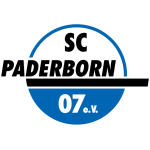 SC Paderborn 07
SC Paderborn 07
|
28 | 11 | 6 | 11 | 43 | 48 | -5 | 39 |
| 10 |
 FC Nurnberg
FC Nurnberg
|
28 | 10 | 7 | 11 | 38 | 52 | -14 | 37 |
| 11 |
 SV Elversberg
SV Elversberg
|
28 | 10 | 6 | 12 | 39 | 48 | -9 | 36 |
| 12 |
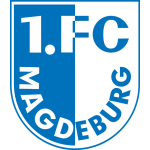 FC Magdeburg
FC Magdeburg
|
28 | 8 | 8 | 12 | 38 | 44 | -6 | 32 |
| 13 |
 SV Wehen
SV Wehen
|
28 | 8 | 7 | 13 | 31 | 38 | -7 | 31 |
| 14 |
 FC Schalke 04
FC Schalke 04
|
27 | 9 | 4 | 14 | 42 | 54 | -12 | 31 |
| 15 |
 Hansa Rostock
Hansa Rostock
|
28 | 9 | 4 | 15 | 27 | 44 | -17 | 31 |
| 16 |
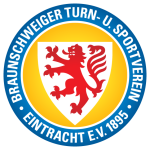 Eintracht Braunschweig
Eintracht Braunschweig
|
27 | 9 | 3 | 15 | 30 | 39 | -9 | 30 |
| 17 |
 FC Kaiserslautern
FC Kaiserslautern
|
28 | 8 | 5 | 15 | 44 | 56 | -12 | 29 |
| 18 |
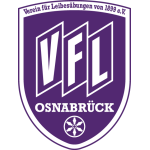 VfL Osnabruck
VfL Osnabruck
|
27 | 4 | 9 | 14 | 25 | 53 | -28 | 21 |
About Hansa Rostock
F.C. Hansa Rostock is a renowned German football club based in the city of Rostock, Mecklenburg-Vorpommern. Founded on 28 December 1965, the club has a rich history that spans over five decades. Known for its distinctive blue and white colors, Hansa Rostock is a symbol of passion, determination, and resilience in German football.
The club's name, "Hansa," is derived from the Hanseatic League, an alliance of trading cities that maintained a trade monopoly over most of Northern Europe and the Baltic during the Middle Ages. This historical connection reflects the club's deep roots in the region and its commitment to representing its community on the national stage.
Hansa Rostock has had a rollercoaster journey in German football. The club has spent most of its history oscillating between the first and second tiers of the Bundesliga. The team's most successful period came in the early 1990s when they were a mainstay in the top flight. They even participated in the UEFA Cup in the 1995-96 season, marking a high point in their history.
Despite the ups and downs, Hansa Rostock has always been known for its strong fan base. The Ostseestadion, the club's home ground, is often filled with passionate supporters who are renowned for their loyalty and fervor. The stadium, with a capacity of 29,000, is one of the largest in the lower tiers of German football.
Hansa Rostock's youth academy is also a significant part of the club's identity. The club has a proud tradition of nurturing young talents and has produced several players who have gone on to have successful careers in the Bundesliga and beyond.
The club's emblem, a blue ship on a white background, symbolizes Rostock's maritime history and the Hanseatic League. The ship is often seen sailing on a rough sea, a fitting metaphor for the club's journey through the turbulent waters of German football.
In recent years, Hansa Rostock has been striving to return to its former glory. After a few years in the third division, the club earned promotion back to the 2. Bundesliga in the 2020-21 season, signaling a potential resurgence.
Off the pitch, Hansa Rostock is deeply committed to its social responsibilities. The club is involved in various community initiatives and charity work, reflecting its dedication to giving back to the community that has supported it throughout its history.
In conclusion, F.C. Hansa Rostock is more than just a football club. It is a symbol of the city of Rostock and its people. Despite the challenges and setbacks, the club continues to sail forward, embodying the spirit of resilience and determination that has defined its journey so far.















